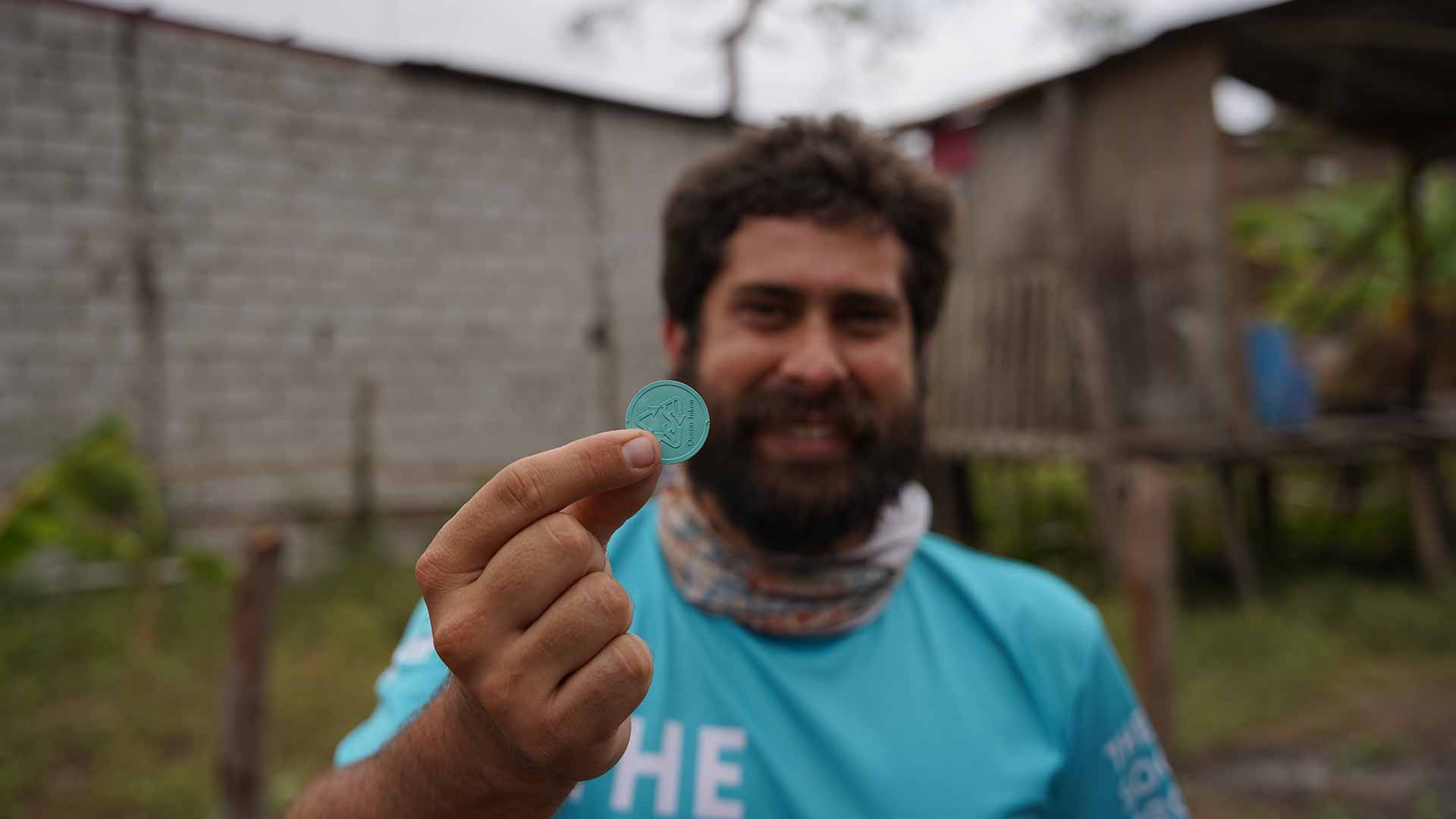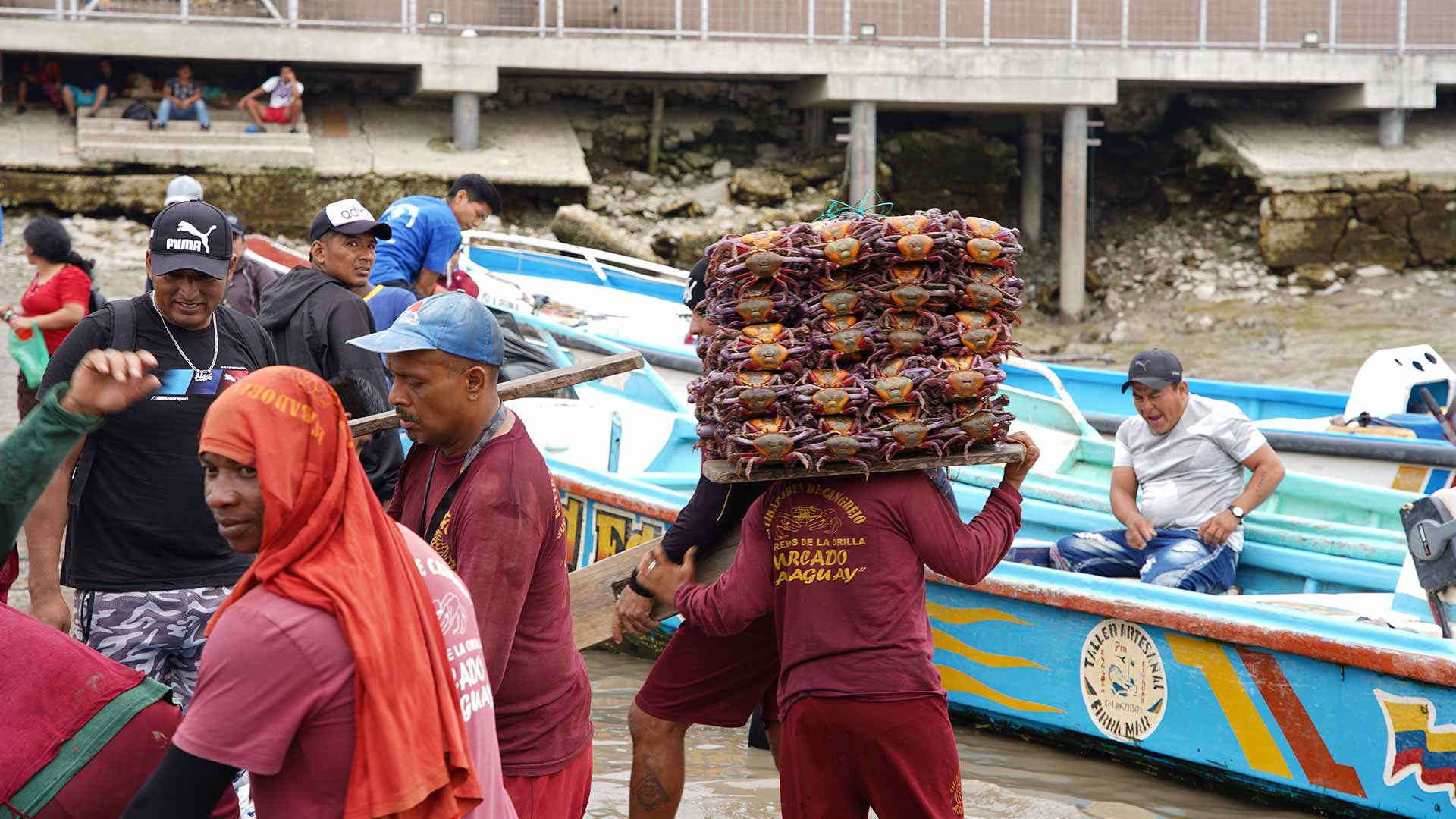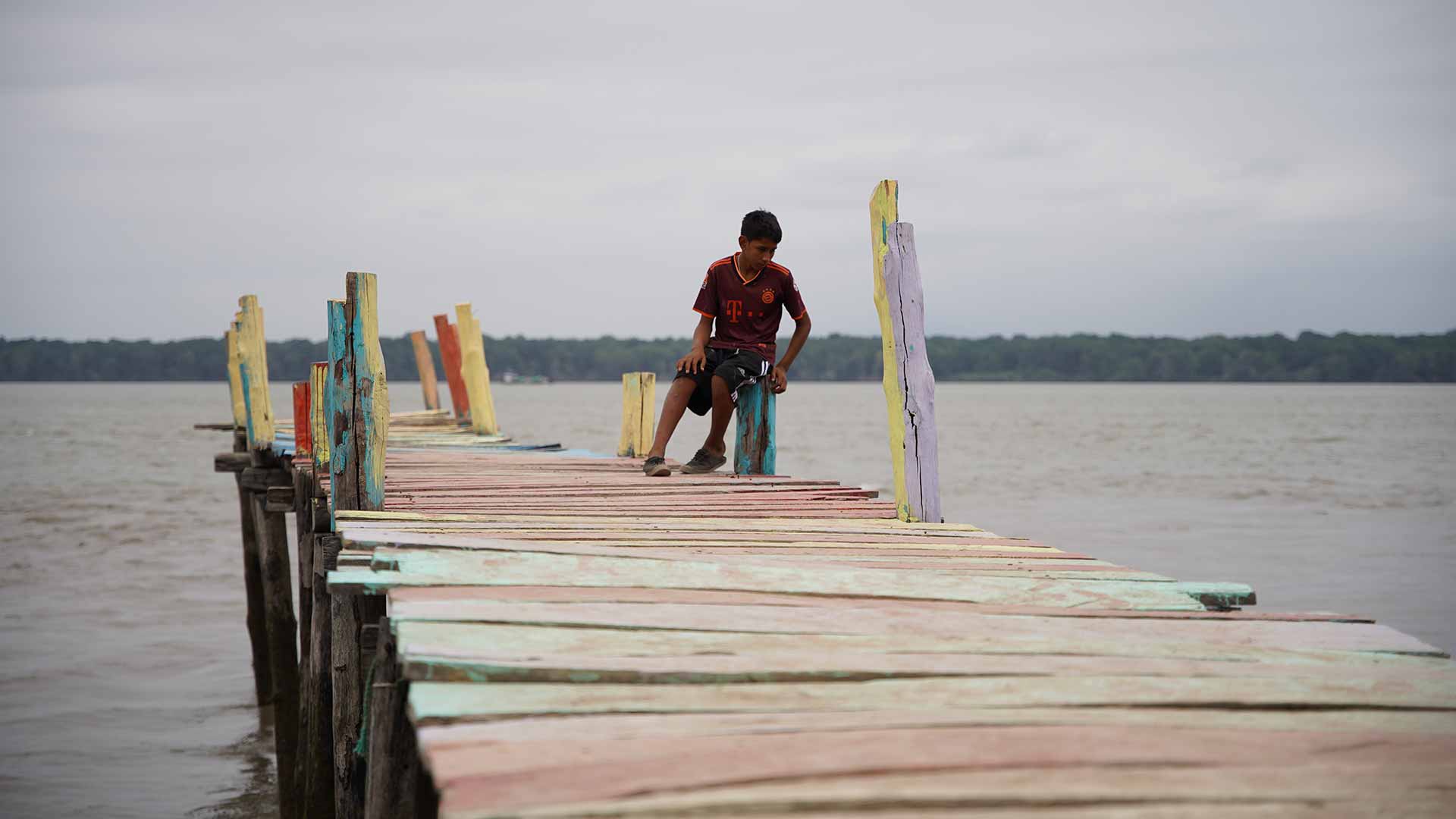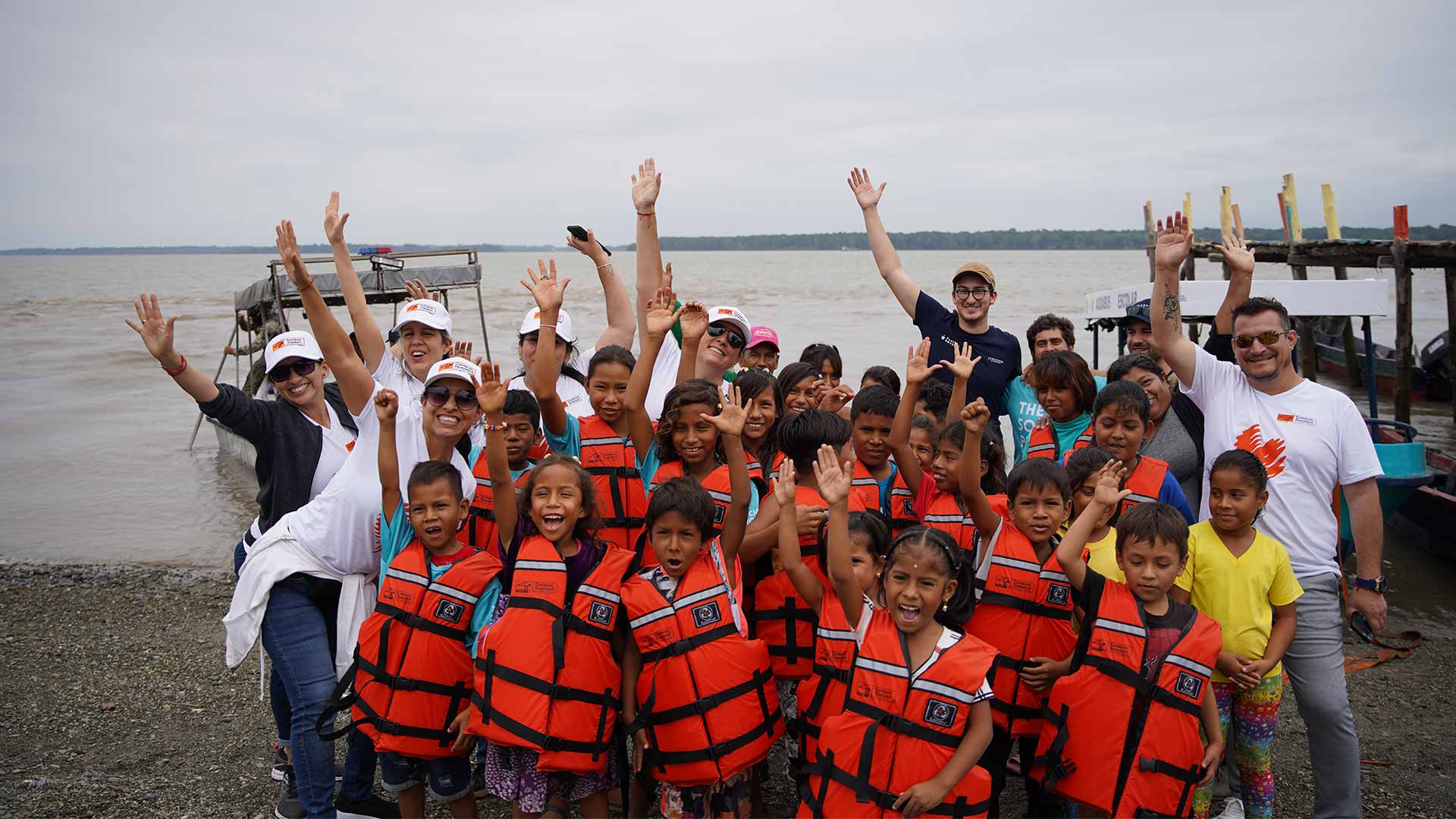
Crabs, plastic and education: The story of the Punta de Piedra community in Ecuador
What’s more, all the waste from the country’s most populous city washes up on the community’s shores, contaminating the water and marine life. To help the inhabitants of this vulnerable area, Ezéquiel of The Social Project Foundation has set up an ingenious, sustainable project to help families improve their living conditions.

An ecosystem devastated by plastic pollution
The community of Punta de Piedra, faced with a high poverty line, relies heavily on artisanal fishing for its income, particularly crabs and shrimps. However, this activity is hampered by the plastic pollution that ravages their living environment. Mangroves play a crucial role in the ecosystem, acting as natural filters, purifying water and storing large quantities of carbon. Unfortunately, these coastal trees are now accumulating plastic between their roots, which is having a serious impact on their health.
Crabs, for their part, which are essential to the ecological balance, confuse plastic with their usual food, bringing single-use objects into their holes for later ingestion. The shellfish are thus contaminated, spreading plastic micro-particles into the soil, which becomes less and less fertile.
“Plastic is everywhere. In the crabs’ holes, there are plastic spoons and all sorts of garbage. If we don’t pick it up, the lives of the crabs and the future of the fishery will really be in jeopardy.”,says Jacqueline Bella, a local resident, crab fisherwoman, recycler and farmer.
In order to protect their environment and earn extra income, many local residents have joined forces to collect recyclable plastic: “When there’s no seafood, we clean up the banks by collecting the plastic and then go sell it in town (in Guayaquil) so we can survive and feed the family.” Jacqueline also testifies.

A local currency that facilitates education
What’s more, few children have the chance to go to school, as they have to pay $2 for the boat trip. 6 years ago, Ezéquiel Castro, founder of The Social Project Foundation, with the help of volunteers and private donors, set up a pilot project to enable young people to study using the plastic collected in the community. He has created a local currency that children can obtain in exchange for plastic collected in the community. With these small round coins, they can pay for their pirogue trip to school and back.

This approach aims to raise awareness among children from an early age, encouraging them to develop a social conscience and contribute to the preservation of their environment, while offering them access to education, paving the way for a more promising future.
A safe and educational pirogue
During our visit to the community, Ezéquiel told us that today was a special day for the community:
“We’re celebrating the inauguration of a new boat specially designed to take children to school, much safer and more educational, since it’s also intended to be a mobile library,” testifies Ézequiel Castro.

Indeed, on the boat’s roof, a selection of books is available for children to develop a passion for reading.
Thanks to this project, over 170 families in the community have been positively impacted. This pilot project has become a successful model to be replicated in other vulnerable communities in the region.
The moving story of Punta de Piedra demonstrates once again the strength of community, the will to unite for a better world, and the resilience of communities in the face of plastic pollution.
